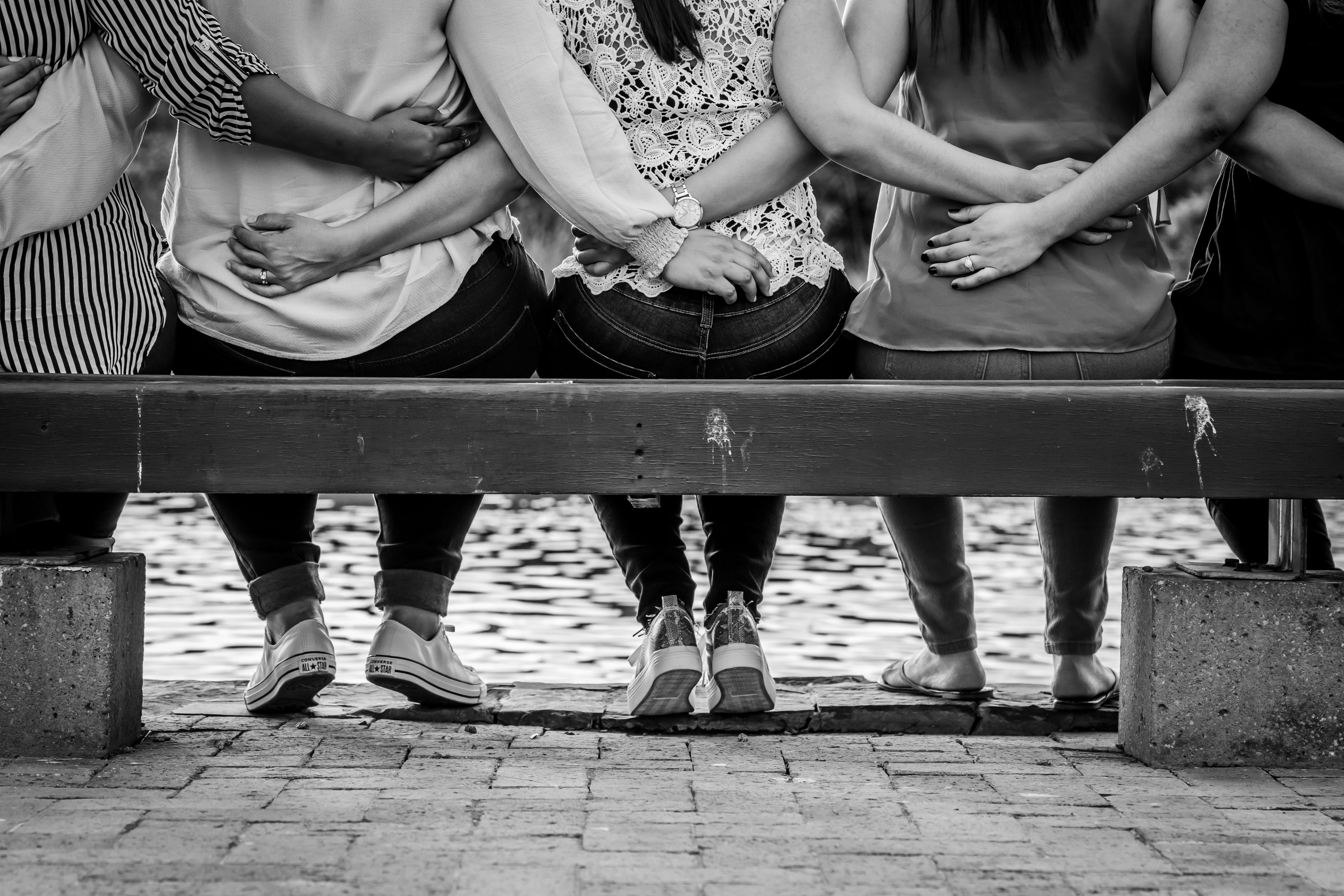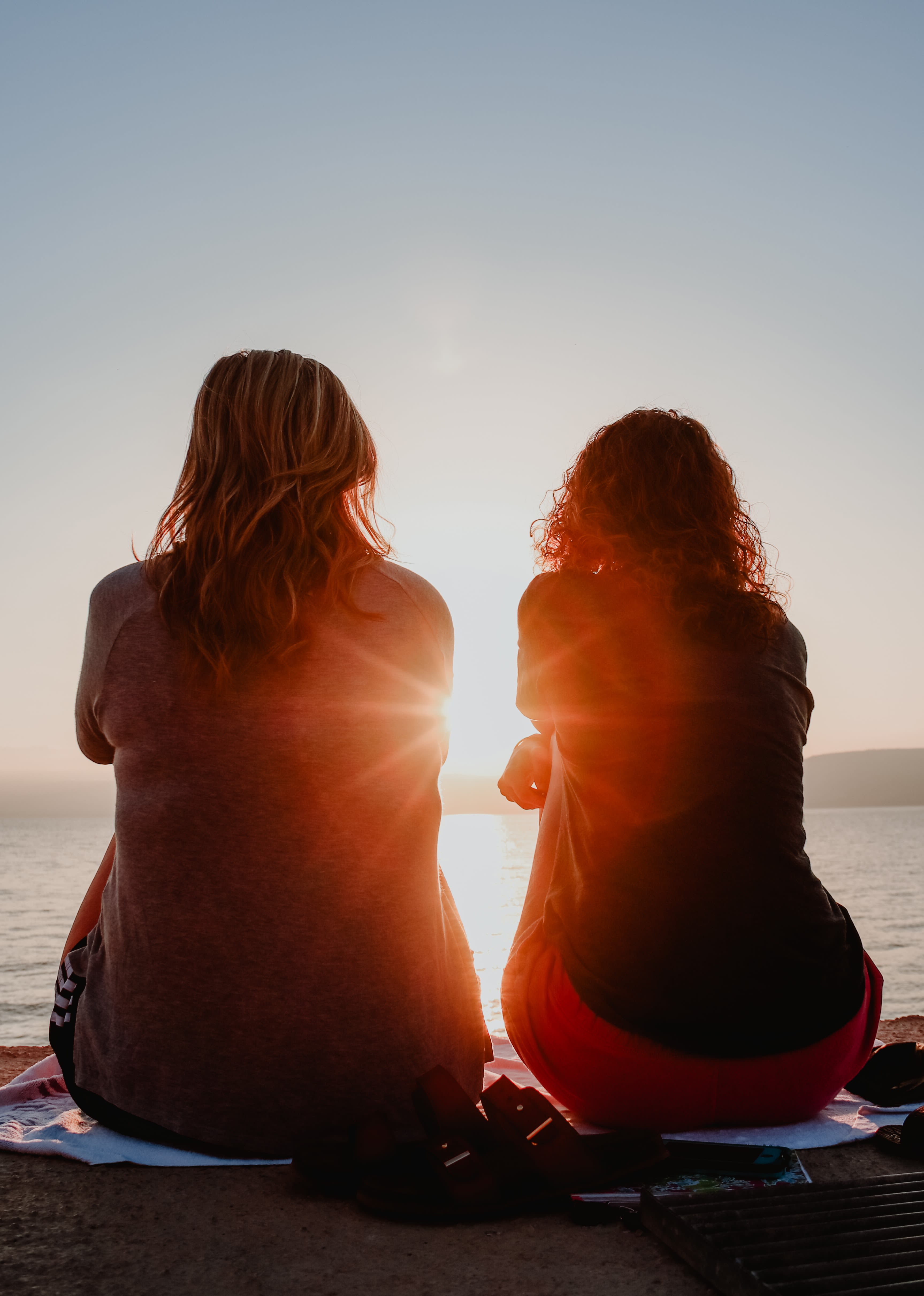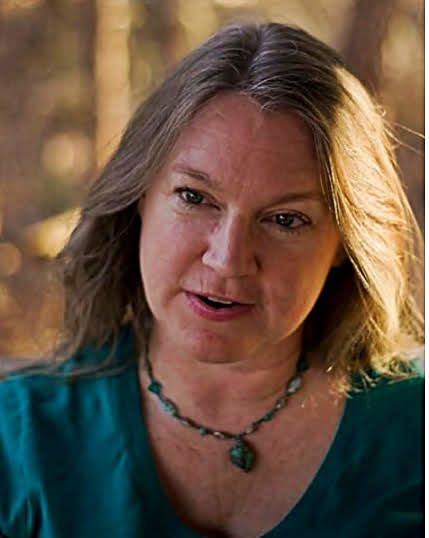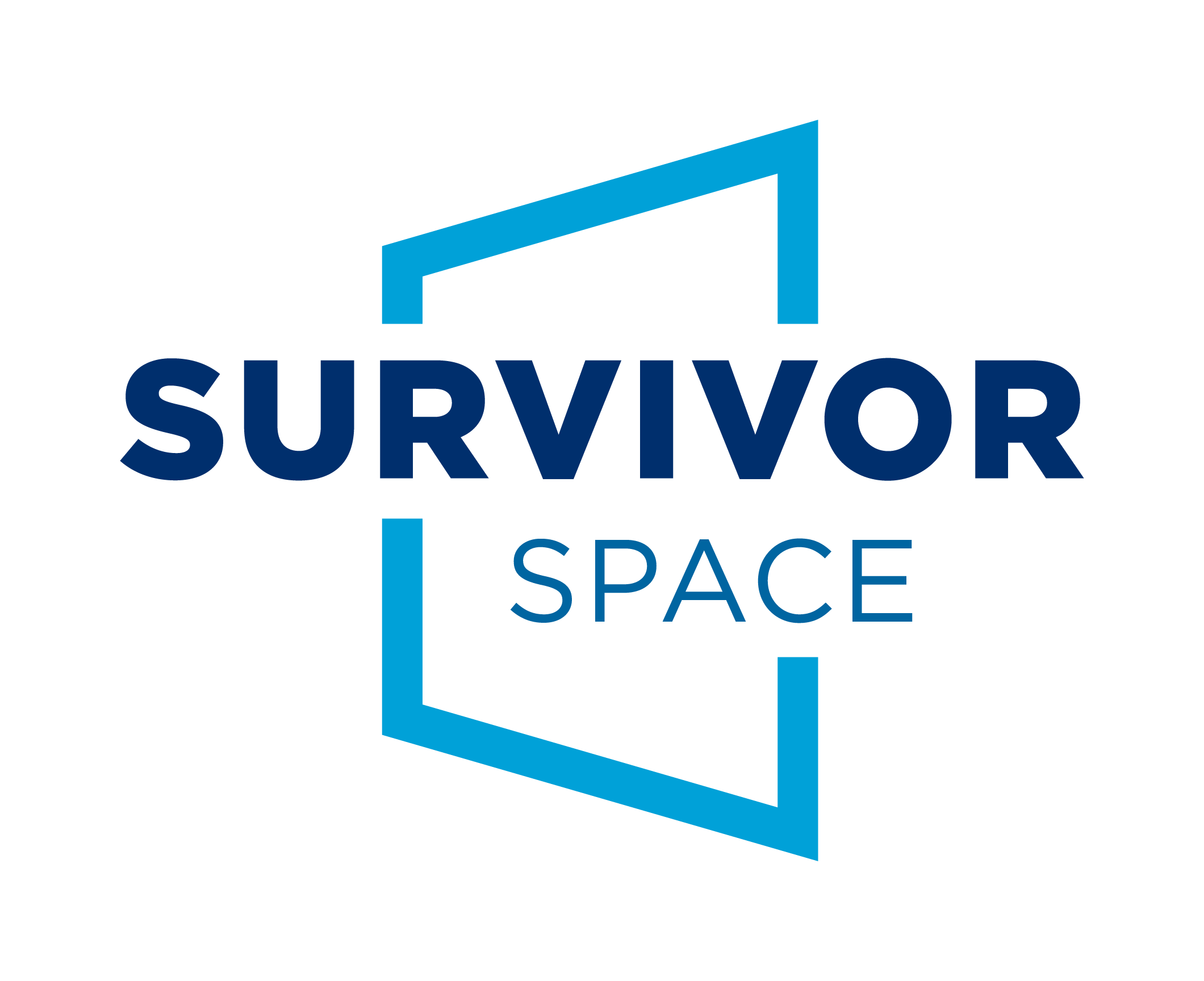Advocating for Each Other

When I started doing my really deep self-work as a survivor, I was pregnant with my son, and I got into therapy because I deeply wanted to be a good mother and simply didn’t feel ready. It seemed like my past trauma might get in the way of good parenting, and I didn’t want my child to have to pay for the abuse I’d suffered in childhood. I joined a therapy group, too, and there found the greatest support of my life from two women who quickly became sisters to me. We even got a photo of ourselves together, three sisters; one of them provided a house where I could live when she left it, and I got to be bridesmaid for the other’s wedding. After one year of deep work in therapy group, we knew things about each other that people who’d known us all our lives never could guess.
I learned from those two friends how a survivor can advocate for other survivors. Basically, it takes authenticity, transparency, and love. One of the women had been doing her self-work for more than a decade, and she became a real role model. She offered lists of books that she had read that helped, and soon everyone in the group had read Outgrowing the Pain, by Eliana Gil, which we called our Beginning Pain Manual, and then Repeat After Me, by Claudia Black, which we called our Advanced Pain Manual. We met every week. We asked how we were doing. We talked and talked and talked. One of us loved to clean when under stress, and another one hated to clean. “Can I please come clean your house?” the super cleaner asked the messy one. “Mine is all clean, and it’s no fun. I would love to clean your house.” The messy one grinned. Soon, they both felt happy – one fulfilled through cleaning and taking care of the other, and the other fulfilled through feeling nurtured herself. One of them got triggered by children and couldn’t spend time with me when I was with my son; the other one worked for a day care and really enjoyed knowing him.
We became more than co-survivors. We became real and true friends who believed in each other, trusted each other, and together we learned that we were lovable, even when somebody knew all about our worst and ugliest moments in life. We advocate for each other by listening with love. We became cheerleaders for each other, and shared strengths. When the support group ended, we stayed friends.
Three of my other dearest friends in life have been survivors, and we bonded through joy and only later found that we had a certain kind of tragedy in common. One of them potty-trained my daughter while I worked and taught me to make gravy. Another one celebrated New Year’s Eve every year with a big party full of her friends – I am and always have been an introvert – and she made a big cake and called it my birthday party. And a third one let me be her book coach for three years.
To advocate for each other means to support each other’s strengths, to see the deepest beauty in each other, and to reflect that beauty back when we really, really need to know that we’re more than the sum of our saddest moments. How beautiful it feels to have someone say, “I believe in you. I know you can do this. You’ve been through so much worse.”
Now one of my deep-heart friends has passed away, and the others live far away from me, in different states. I have found a couple of new friends who are survivors. We advocate for each other by knowing and setting our boundaries and listening to each other without harsh judgement.


Photo by Briana Tozour on Unsplash
Photo by Briana Tozour on Unsplash
Here are my top seven tips for how to be an advocate for your co-survivor friends:
1. Listen, listen, listen, listen, listen. And listen actively, reflectively, repeating back enough of what you hear to show that you are keeping track. When someone’s so overwhelmed that the monologue seems unending, interrupt in order to reflect what you’re hearing. Let your survivor friend know that you hear, and you’re here, and you care. One of my friends in a Dream Group surprised me by sending a note showing the themes in my last three dreams, and how they linked together. That gift showed me that she cared enough to think about the things on my mind, and I returned the favor.
2. Release judgement, but give advice if you need. If your friend’s treading into dangerous areas, it isn’t wise to say nothing if something needs to be said.
3. State and keep your boundaries. In the hardest time of my adult life, I had a list of 22 people I could call and when they could be available, which ones could take 4 a.m. phone calls, and how many 4 a.m. phone calls they could manage in a month. If you can set boundaries with your friends even in their times of deepest need, you can keep those friendships through thick and thin.
4. Lower your expectations. When someone’s working hard on their stuff and dealing with PTSD, they sometimes can’t meet the basic societal expectations. It’s like if your friend was fighting cancer; you wouldn’t expect her to show up perfectly coiffed on time to get her nails done. PTSD hurts, and sometimes you have to allow the space and grace for healing.
5. When someone speaks unkindly of your friend in your presence, instead of maintaining noble silence, simply say, “She’s my friend.” And let that statement stand alone. No defense, no explanation, no sharing of her trauma story – NONE whatsoever – simply a clean, clear fact. “She’s my friend.”
6. Insist on reciprocity. If you give, you need to take. Settling for a lopsided relationship will spell the end of the friendship.
7. Remember not to become your friend’s sole source of support. Some fast referrals include warmlines, crisis lines, and the local mental health center. You need to make sure that your friend can reach someone when you aren’t available, and it’s important to reinforce and support the development of other friends. Introduce your friend to other friends of yours, and go to neutral, safe gatherings together to create a support network for both of you, with potluck dinners and fireside talks.
I became an advocate in the beginning of my healing process because a friend dearly loved me, and when my aunt passed away in a violent way, he urged me to join the volunteer staff of a local crisis line. I went through the training, and it changed my whole perspective. I learned how my pain and trauma could be source material for compassion and empathy. Nobody had to teach me how to walk the walk; I lived it. I didn’t self-reference on crisis calls – but I knew that the person on the other side of that line could find strength and keep going, because I’d done it myself. And that clarity, that kindness, that love can become a lifeline.
Thank you for being a friend.

About the Author:
Kiesa Kay is a Survivor, Author & Playwright
Kiesa’s works include Uniquely Gifted: Identifying and Meeting the Needs of the Twice Exceptional Student, and she co-edited High IQ Kids, which received the Legacy Award for the Best Book for Parents and Teachers in its publication year. Her memoir is titled Tornado Alley, and she’s written What Every Grandparent Needs to Know About Childhood Sexual Abuse. Kiesa’s plays include Thunder is the Mountain’s Voice, Love Makes a Home, and Sky Eyes.

Published by SurvivorSpace, an initiative of Zero Abuse Project
